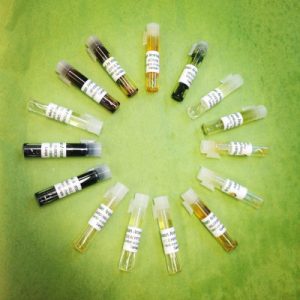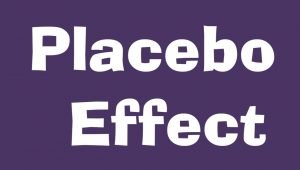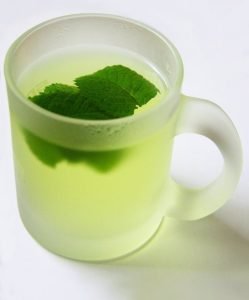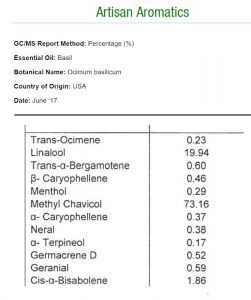By Mark Piatt
Updated on September 20, 2020
Way back when I first started using essential oils and researching them, I discovered they could supposedly cure all sorts of illnesses by not just inhaling them, but by ingesting the essential oils.
But as I continued to learn and do my research, I discovered that many of the people promoting the haphazard ingestion of essential oils were advocates for a couple of big companies that push for their essential oils to be ingested to increase profits.
So, is it ok to ingest essential oils? Here is where it can get a little tricky.
The average home practitioner of essential oils should not be using essential oils orally unless they are under the direction of a professional health care provider. Some essential oils can cause significant poisoning, while other essential oils can be safely ingested.
According to some studies, ingesting essential oils in the proper doses, and taking side effects into account, can be very effective in treating various conditions.
Essential oils are supposed to be primarily used for aromatherapy and for making your place smell good. Even though they are all-natural, they can be toxic when ingested. Therefore, ingesting essential oils for treating a condition should only be done with the supervision of a trained medical professional.
Ingesting essential oils incorrectly in some cases can cause various issues including seizures, skin reactions, bronchial problems, hepatoxicity, coma, and death. Ingesting essential oils can also have adverse effects on prescribed medications.
Many essential oils can be used orally, but always in precise, and extremely low dosages. Much lower than what you would think or that many people are suggesting on their blogs.
As an example, when someone says you should add 2 drops of xxx oil, that is not a precise measurement. The drop can vary in size depending on the dropper being used and the oil itself. Plus, since the industry is not regulated, you do not know exactly what is in that drop.
We are going to look at the myths and misconceptions about ingesting essential oils and then look at the facts about ingesting essential oils.
Since I am not a professional health care provider, this article will not provide any advice or guidelines on treating any illness by ingesting essential oils.
DISCLAIMER:
Information provided in this description is for educational purposes only. For possible treatments of physical or mental diseases, please seek a trained and licensed health professional. Enchanted Aromatics is not responsible for any adverse side effects resulting from the use of any suggestions, products, preparations, or procedures mentioned or from following historical uses of essential oils.
What are essential oils?
 Essential oils are nothing new. The aromatic properties of plants have been used for thousands of years and people have known that various plants can heal by various means, including ingesting these plants.
Essential oils are nothing new. The aromatic properties of plants have been used for thousands of years and people have known that various plants can heal by various means, including ingesting these plants.
These healing properties come from the natural compounds found in the essential oils that the plant produces.
Every day we all consume essential oils. They can be found in nuts, fruits, vegetables, coffee, and herbs. By weight, fresh aromatic plants contain about 1-2% of volatile aromatic compounds.
It is these compounds that give essential oils their distinctive aromas. Thanks to nature, we have a treasure trove of aromas to choose from. Thousands of compounds have been detected in essential oils. A single essential oil can contain over 300 of these compounds.
When these compounds are isolated using techniques such as distillation, you end up with an increased concentration of these compounds. These concentrated compounds are what we refer to as essential oils.
By concentrating these compounds, any therapeutic properties found in these compounds will be magnified in the concentrated essential oil. But also, if these compounds have any toxicological effects, these effects will be magnified.
“Are essential oils a placebo?”
 Some people on the internet are completely against using essential oils therapeutically. They say essential oils are nothing more than the “snake oils” of the late eighteenth and early nineteenth centuries. Sellers of these oils made wild and false claims that these oils could supposedly cure all sorts of illnesses.
Some people on the internet are completely against using essential oils therapeutically. They say essential oils are nothing more than the “snake oils” of the late eighteenth and early nineteenth centuries. Sellers of these oils made wild and false claims that these oils could supposedly cure all sorts of illnesses.
We must ask ourselves, “Are people just imagining that essential oils have healing properties”?
The mind is a funny thing. Sometimes that belief is powerful enough to mimic the effects of actual treatments. Placebos can trick you into thinking they have healing properties, even though their healing effects are completely imaginary. But placebos do not contain active substances that can affect health.
Do essential oils contain substances that can affect health?
Absolutely YES. This fact is recognized by the scientific and medical community. Corporations and various private institutions are actively testing to see what properties of essential oils they can use to develop commercial therapeutic applications.
But with that said, some of the therapeutic properties being reported about essential oils may be nothing more than the placebo effect. So, one must be careful if they are planning to treat themselves using essential oils.
“My essential oils are 100% all-natural so ingesting essential oils is safe.”
You see this one being promoted by companies and by people all over the internet. But just because a product is 100% natural, does not make it safe to use.
As an example, on their website, doTERRA states “doTERRA On Guard can be taken internally daily to maintain healthy immune function.” But, this product is a proprietary blend, so you do not even know what you are ingesting.
The National Association for Holistic Aromatherapy advises against ingesting essential oils without consulting a medical professional.
The apple seed example
 Many of us love to eat our 100% all-natural organic apples. Some people even enjoy chewing on the seeds. This is perfectly fine to do if you do not eat a lot of the seeds.
Many of us love to eat our 100% all-natural organic apples. Some people even enjoy chewing on the seeds. This is perfectly fine to do if you do not eat a lot of the seeds.
You see, the 100% all-natural apple seed has a compound called amygdalin, which is used as a natural chemical defense by the apple tree. If the seed remains intact, it is harmless. But once you chew or damage the seed, the amygdalin degrades into hydrogen cyanide.
Cyanide has been used as an extremely efficient poison for killing people for centuries. It was used as a chemical weapon During World War 1. It is used in pesticides and fumigants, and plastics.
It would take a lot of apple seeds to sicken or kill someone. One would need to consume between 83-500 apple seeds to receive acute cyanide poisoning, depending on the species. But it would take much less to get sick from the cyanide. Mild symptoms include anxiety, headaches, dizziness, confusion, and coma.
When you think of plants that essential oils are made from, the plant may have compounds that are also toxic to humans. These compounds become highly concentrated in the essential oil.
Many of the compounds found in essential oils have not had sufficient testing to determine their toxicity in humans. Some of the effects of the toxicity could be immediate and acute, while others may take years to manifest.
Since many of these effects are unknown, a company promoting their essential oils as safe to ingest is providing false and dangerous information to the public. People promoting ingesting essential oils on the internet are also providing dangerous information.
The Peppermint essential oil example
 As an example, peppermint essential oil is considered one of the safest essential oils to use, but that does not mean that it is always safe to ingest.
As an example, peppermint essential oil is considered one of the safest essential oils to use, but that does not mean that it is always safe to ingest.
On YouTube, I saw an individual promoting the ingestion of peppermint oil for Irritable Bowel Syndrome (IBS). (Peppermint tea has long been known to help soothe intestinal issues.) They were also a promoter for one of those companies that promote the ingestion of their essential oils.
This individual casually added approximately 4 drops of peppermint oil to a cup of water while saying you should drink a cup of this mixture each morning. They gave no warnings about possible health problems arising from ingesting peppermint essential oil.
But there are dangers to ingesting peppermint essential oil. Here are some facts about peppermint essential oil.
- A drop of peppermint essential oil is equivalent to about 28 cups of peppermint tea. (in the above example, adding 4 drops to a cup of water is equivalent to drinking 112 cups of peppermint tea!)
- There are over 300 compounds in peppermint essential oil.
- Peppermint essential oil is toxic in large quantities.
- Can cause burning, ulceration, and inflammation if swallowed undiluted.
- Large doses can cause incoordination, confusion, and delirium.
- Can cause heartburn.
- Menthol and menthone, both found in peppermint essential oil, inhibit platelet aggregation.
- Peppermint essential oil inhibits CYP2C9, the most important enzyme in the metabolism of Warfarin.
- Peppermint oil can interfere with calcium influx into myocardial cells and with the release of intracellular calcium stores.
- Can cause neonatal jaundice in babies with an enzyme deficiency of glucose-6-phosphate dehydrogenase (G6PD).
- Can cause apnea and instant collapse of the airways in infants.
- Peppermint oil is choleretic and should not be taken orally by people that have cholestasis (obstructed bile flow).
- Peppermint oil can exacerbate gastroesophageal reflux disease (GERD).
- Peppermint essential oil contains perilla ketone or egomaketone, which can cause pulmonary toxicity in mammals.
- Peppermint essential oil is highly toxic to cats and dogs. (this includes diffusing the essential oil around your pets, especially cats.)
In other studies, other systemic and organic specific effects have been observed in mice but are not fully understood in humans.
In this study, a near-fatal case of peppermint oil ingestion is discussed.
This is an example of why the average home practitioner of essential oils, who has no medical background, should not be using essential oils orally unless they are under the direction of a professional health care provider.
“Ingesting Essential oils is harmless because they have been used for a long time.”
 This is not true. Many essential oils are poisonous if absorbed through the skin or swallowed. And unlike medicines, many essential oils have not gone through vigorous testing to determine their safety. Yet people swallow their essential oils for all sorts of ailments, apply them on their skin, and even use them in their diffusers around their infants.
This is not true. Many essential oils are poisonous if absorbed through the skin or swallowed. And unlike medicines, many essential oils have not gone through vigorous testing to determine their safety. Yet people swallow their essential oils for all sorts of ailments, apply them on their skin, and even use them in their diffusers around their infants.
Then there is the fact that anyone can be allergic to anything. Children tend to be more susceptible to the toxic effects found in essential oils compared to adults.
Most people take prescription drugs for various ailments. Both the drug and the essential oil industries have not conducted studies to understand these interactions. Most physicians are not well versed in essential oil use.
The essential oil industry is not regulated. Since anyone can distill the essential oils out of the plant, the medical industry cannot patent the process, and therefore, is not interested in the alleged healing abilities of essential oils. Although they are interested in isolating specific compounds found in essential oils to target various ailments. That process is patentable.
Because the industry is not regulated, every batch of essential oil, even from the same company, can have different amounts of its active chemicals. These varying amounts can have different effects on the human body. Also, there is no way of knowing if there are any contaminants in the oil.
The essential oil industry is a booming business. To make a quick buck, there are companies out there creating fake essential oils or adulterating their essential oils with less expensive chemicals and passing them off as 100% all-natural.
These essential oils are mixed with different ingredients, which could increase toxicity levels for certain individuals. These ingredients could be other essential oils, manufactured chemicals, toxic waste, or even petroleum-based products.
As an example, because of the high costs of Tea Tree essential oil, and its wide use in various industries, Tea Tree essential oil has become a target of unethical suppliers.
According to this article published by Nutraingredients-usa.com, unethical suppliers will adulterate their Tea Tree with less expensive monoterpene-rich materials obtained from industrial waste. They will also adulterate it with less expensive chemical compounds originating from plant material, fermentation, or chemical synthesis.
“My essential oils are listed by the FDA as ‘GRAS’, so they are safe to ingest.”
The U.S. Food and Drug Administration (FDA) requires any substance (including some essential oils) that are intentionally added to food to be classified as GRAS – Generally Recognized As Safe.
This designation does not mean that essential oils are safe to use in any application that will be ingested. Its GRAS status is only as an additive for food and drink products.
To receive this designation by the FDA, the following 4 criteria must be met:
- The substance must be recognized as safe by qualified experts.
- The experts need to have the appropriate training and experience to evaluate the substance’s safety.
- Safety is determined via scientific procedures or through a rigorously referenced common use in food before 1958.
- GRAS is determined by the conditions of intended use in the food.
For an essential oil to receive this designation, experts look at the toxicology, organic chemistry, biochemistry, metabolism, and pathology of the essential oil as it relates to the human body.
GRAS essential oils are intended to be used to flavor foods or beverages. This designation does not refer to the essential oil’s safety concerning ingesting the essential oil for any other reason.
The FDA itself notes that their GRAS list does not mean the essential oils are helpful as dietary supplements.
For more information and a complete list of essential oils with GRAS status, here is the official FDA LINK. Essential oils can be found in section 182.20.
“Essential oils are safe to ingest if they are classified as ‘therapeutic grade’”
 While looking around for essential oils, you may notice some companies claim their essential oils are therapeutic grade, medical grade, approved grade, holistic grade, or maybe aromatherapy grade.
While looking around for essential oils, you may notice some companies claim their essential oils are therapeutic grade, medical grade, approved grade, holistic grade, or maybe aromatherapy grade.
These terms give a false sense that these essential oils being sold by those companies are somehow “purer” compared to other companies.
First, no recognized body grades or certifies essential oils.
The term “therapeutic grade” and all the other classifications were created by marketers to make people believe their essential oils were somehow better compared to essential oils being sold by other competitors. Again, there is no grading system to determine whether one essential oil is better than another essential oil.
Second, any company can slap the word “therapeutic” to their essential oils since there is no official grading system for essential oils.
If companies are selling “therapeutic” grade essential oils, then there have to be companies selling “non-therapeutic” grade essential oils. Have you ever looked for a company selling essential oils that are not “therapeutic grade”? Try it. You will not find any.
You may run across the term “Certified Pure Therapeutic Grade.” This is a trademarked grade created by DoTERRA. Who does the certifying? DoTERRA does of course. As a result, no other company can receive that certification. So, do not get sucked into the hype thinking you are somehow getting a better essential oil because it has been certified.
In addition, the mark is trademarked by DoTERRA, but not the words.
But in defense of DoTERRA, it has been my experience that the few essential oils I have purchased from this company appeared to be of very high quality. They also claim to test every batch of essential oil including third-party testing. Each batch must pass their CPTG – Certified Pure Tested Grade protocol. Their testing protocols are much more vigorous than most other companies can claim about their testing guidelines.
“My essential oil company provides a GC/MS report showing the oil is safe to ingest”
 In case you do not know, A GC/MS report is created from a chemical analysis of the essential oils. The analysis is performed by a gas chromatograph. The gas chromatograph separates and reveals the individual compounds found in the essential oil.
In case you do not know, A GC/MS report is created from a chemical analysis of the essential oils. The analysis is performed by a gas chromatograph. The gas chromatograph separates and reveals the individual compounds found in the essential oil.
This test is a good way of knowing if the essential oil is authentic and has not been adulterated.
Some companies will purchase their essential oils on the mass market without knowing if their essential oils are pure. They will market their essential oils as pure or therapeutic quality (even though there is no grading system), but their essential oils may be adulterated with other chemicals to increase profits.
But, there will always be chemical variations in the essential oil that is a result of harvest time, country of origin, soil and climate conditions, which part of the plant was used, the extraction process, transport and storage parameters, and other environmental and genetic influences.
Only someone trained in interpreting these reports can truly understand if the essential oil is “pure”, so do not get caught up in the hype that a company uses GC-MS reports on their essential oils.
Because of this, the GC/MS report should not be the only guide when purchasing an essential oil.
The GC/MS report does not indicate if an essential oil is safe to ingest. It only shows what compounds were in that specific batch that was tested.
On a side note, here at Enchanted Aromatics, our essential oil companies run GC/MS reports on their essential oils. Also, they do not purchase their essential oils from the mass market. Instead, they work closely with the individual growers, farmers, and distillers to make sure you are receiving top-quality essential oils.
“There is no evidence that essential oils can effectively treat anything.”
 This statement is completely false.
This statement is completely false.
There has been a great deal of research and there continues to be a great deal of promising research to determine the effectiveness of essential oils in human results.
Most research has focused on the psychological effects such as the ability of essential oils to reduce stress, and anxiety, or as being used as a topical treatment for some skin conditions.
Also, many of the studies rely on personal subjective experience which can skew the results.
Many of the studies that have been conducted suggest the odor from essential oils may have therapeutic applications when dealing with mild stress or other psychological conditions.
Some studies indicate there are some benefits from using essential oils while some studies indicate there are no benefits.
A good book to check out that has references to numerous studies is “Essential Oil Safety”, Second Edition – by Robert Tisserand and Rodney Young.
Also, by using Google, doing a quick search on a specific essential oil followed by the word “studies” will bring up a good list of various studies that have been conducted on that essential oil.
You can also read about various studies that have been conducted on treating specific conditions.
For example, by going to Google and typing “anxiety studies with essential oils”, you will get a massive amount of information on this subject.
Another example is doing the following search: “cancer studies on essential oils”. This will bring up studies primarily on how essential oils can help improve the quality of life in some cancer patients – not in curing cancer.
Be wary of exaggerated or false claims
Unfortunately, there are many false and exaggerated claims being made about the ability of essential oils to heal all sorts of ailments.
As an example, in 2014, several Young Living distributors, doTERRA distributors, and Natural Solutions Foundation got in trouble with the FDA for making unfounded claims about the ability of essential oils to kill Ebola. The warning letter had been posted online on the FDA website but has since been taken down. This is the FDA web link where the letter to Young Living was originally posted: https://www.fda.gov/ICECI/EnforcementActions/WarningLetters/2017/ucm416023.html
Here is an excerpt of some of these false claims.
“Viruses (including Ebola) are no match for Young Living Essential Oils.”
“Top on my list is Thieves. Thieves are highly anti-microbial . . . it could help against Ebola.”
“Ebola Virus can not live in the presence of cinnamon bark (this is in Thieves) nor Oregano.”
The lesson here is if it sounds too good to be true, then it probably is.
Conclusion
Essential oils are very potent. They can easily become an irritant or aggravate existing problems. Essential oils are not a “cure-all”, but they can benefit your life, mind, and emotional well-being, and possibly, other medical issues.
Even today, there are huge gaps in our knowledge concerning the short-term and long-term toxicological effects of essential oils. Because of this lack of information, you should treat your essential oils as poison. If you do plan on ingesting them, take the necessary precautions to keep you and your family safe.
Essential oils are made to be used in aromatherapy. It is best to stick with using essential oils in your diffuser to make your space smell terrific or maybe to use them as a quick “picker-upper” when you are down in the slumps.
Here at Enchanted Aromatics, we sell various essential oils primarily to make your space smell absolutely wonderful while avoiding those harsh chemicals in a can. We will give some historical information on how each essential oil has been used. But we will only give that information if there is research to back it up. We will never advise someone to ingest our essential oils, even though, they may be ok to ingest if directed by a medical professional.
So, stay safe my friends, and use your essential oils smartly.
Mark



Good article. I think you’d like this video although it is not about ingestion of essential oils, only topical application: https://www.youtube.com/watch?v=eTsDUN9Jnt0
Good video. I am aware of the potential cancer-fighting properties of frankincense and thyme according to in-vitro studies (studies under glass/test tubes). But we do have to be careful with such studies. As an example, bleach is great at killing viruses and bacteria, but you probably do not want to be drinking or injecting bleach. But some of the in-vivo studies highlighted in the video are promising (for the basal-cell carcinoma case). Thanks for the feedback.
Thankfulness to my father who informed me about this website, this webpage is genuinely remarkable.